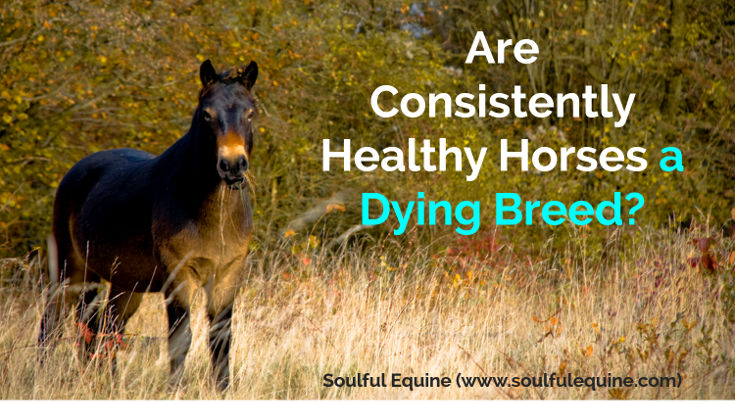
What is the essential foundation of a quality natural horse care program?
Something I’m good at is identifying patterns. I love to discover common patterns in most anything.
Since I have such a deep-rooted computer science background, identifying and understanding patterns comes naturally to me. It can be any kind of pattern. For example, common patterns exist in both the human and animal health care industries. Most of which are both counterproductive and detrimental.
However, the type of pattern to encourage is a positive pattern – in other words, a pattern that results in a desirable outcome.
Principles and Positive Patterns
Anyone who knows me well understands that I take my health and the health of my animals seriously. My diet is strict (although I do occasionally treat myself to pizza and beer).
Since I grew up on a typical Texas farm, great home-style cooking was abundant (just thinking about it makes my mouth water). Like most people “from the farm” I love to eat, so developing the discipline of consistent, healthy eating was not easy. However, over time, it was apparent to me that my health depended on my eating habits, and changing my lifestyle became a necessity.
For more than 20 years, I’ve been passionate about constantly learning and implementing key health and wellness principles in my life. Many of which I also apply to horses.
By modifying my behavior when it came to diet, I was able to overcome many health challenges earlier in my adult life. Additionally, I continue to manage certain issues I know can resurface or that can manifest into something worse.
Quality food is much like a dear friend to me and I honor its ability to heal the body. I also have respect for the fact that the wrong kind of food can cause debilitating disease.
When diet is wrong medicine is of no use. When diet is correct medicine is of no need.” ~ Ancient Ayurvedic Proverb
Over time I developed a daily regimen that I continue to fine-tune and improve upon each year. That regimen includes, but is not limited to, high quality superfood/superherb supplementation, as much gluten free as possible, minimal sugar and red meat intake, no processed dairy (except for pizza night), and avoidance of genetically modified (GMO) foods and ingredients.
My horse care program is quite similar. The principles and positive patterns I adhere to – in order to keep my horses sound, healthy and happy – are much like the principles I use for my own health. The reason? It works. More importantly, the pattern is that it works and it works for the long term.
Principles That Just Work!
What works is choosing to follow a healthy lifestyle regimen where you promote your horse’s health, which is even better than prevention of disease and illness.
Put this approach over quick fixes or having to treat a problem.
The quick fix or “Silver Bullet Poisoning” approach only works in the short term.* Sometimes it doesn’t work at all.
Writing this article got me thinking about what I would do if I had to start over again. What elements of my current horse care program would I need to recreate in order to have a good foundation in place? I covered most of those necessary components in my book, Guiding Principles of Natural Horse Care, but what we still need to address is this:
The first definition we need to agree on is that a consistently healthy horse has few, if any, health issues over the course of her life. In other words, she has quality of life and longevity and you achieve the ideal of minimal veterinary expenses.
This seems obvious, but few people can say, “My horse has no health issues and my vet expenses are practically non-existent.” When you follow a healthy, consistent regimen, if something does happen to your horse, she heals quickly and most times (since you are your horse’s confident, well-informed captain) you’re able to handle it on your own minus the expensive vet bills.
Common Equine Health Issues
To jog your memory on what can be considered a “health issue,” here are a few common ones horses experience:
- Allergies
- Colic
- Ulcers
- Reoccurring thrush
- Low-grade or full-blown laminitis
- The “need” to have metal shoes nailed on to their hooves
- Chronic runny eyes and nose
- Vices such as cribbing and weaving
- Manure that indicates health issues
- The next “disease” wave
And the list goes on …
As far as fundamental indicators of poor or vibrant health, most concerns revolve around:
- Skin and hair quality
- Hoof health
- Dental health
- Immune system health
- Digestive health
- Hormonal health
- Mental and emotional health
The majority of domestic horses experience health problems from that list – daily.
Any person of sound mind would agree that’s a problem.
You Can Choose Principles that Minimize Equine Health Concerns
How many horse guardians can say their horse has been consistently healthy for more than 10 years? The key to knowing if your foundation is working is to know that your guiding principles are working in the long run; otherwise they’re quick fixes.
Any time you have a problem with your horse’s health, there are holes in your natural horse care program.
A problem could be anything – just name it – such as reoccurring thrush, brittle hooves, hair coat bleaching out in the summer, hormonal issues, “needing” to chemically deworm your horse, any time you have to administer a drug, ulcers, arthritis, tying-up, equine protozoal myeloencephalitis (EPM), Cushing’s, insulin resistance (IR), digestive system problems, and the list goes on.
Again, interestingly enough, these are common health concerns in the equine world. Most horses have five or more of the issues I’ve listed at one time!
A common pattern in the horse industry is that most people believe this type of stuff is “normal” – and it is, if you’re not a naturally-minded horse care guardian.
The Natural Horse Care Guardian Has a Different Approach
When you’re naturally-minded, you ask yourself, “Where are my holes?” or “Do I have holes in my horse care program?”
From there you decide to dig deeper and become a more informed equine guardian rather than looking for a quick fix. You also decide to become the CEO of your horse’s health.
As a good friend of mine says,
Utilize experts but do not rely on them.”
I’m not going to sugar coat it. Although the quick fixes offered by most equine experts appear to be the easy way out, in the end those “fixes” may create more problems in the long run – some that are sadly irreversible.
My challenge to you is to strive for that ideal of a consistently healthy horse and intentionally interrupt any common, destructive patterns in the equine industry.
What are some common patterns you can identify in your horse care program or in the horse care industry? Are they positive, negative, destructive, or counterproductive? What have you observed?
Now over to you. The action happens in the comments, so share your thoughts!
Keep it soulful,
Stephanie Krahl
####
Original Photo Credit – original photo modified in size and to include the Soulful Equine name, URL and article title
